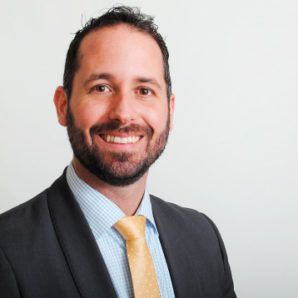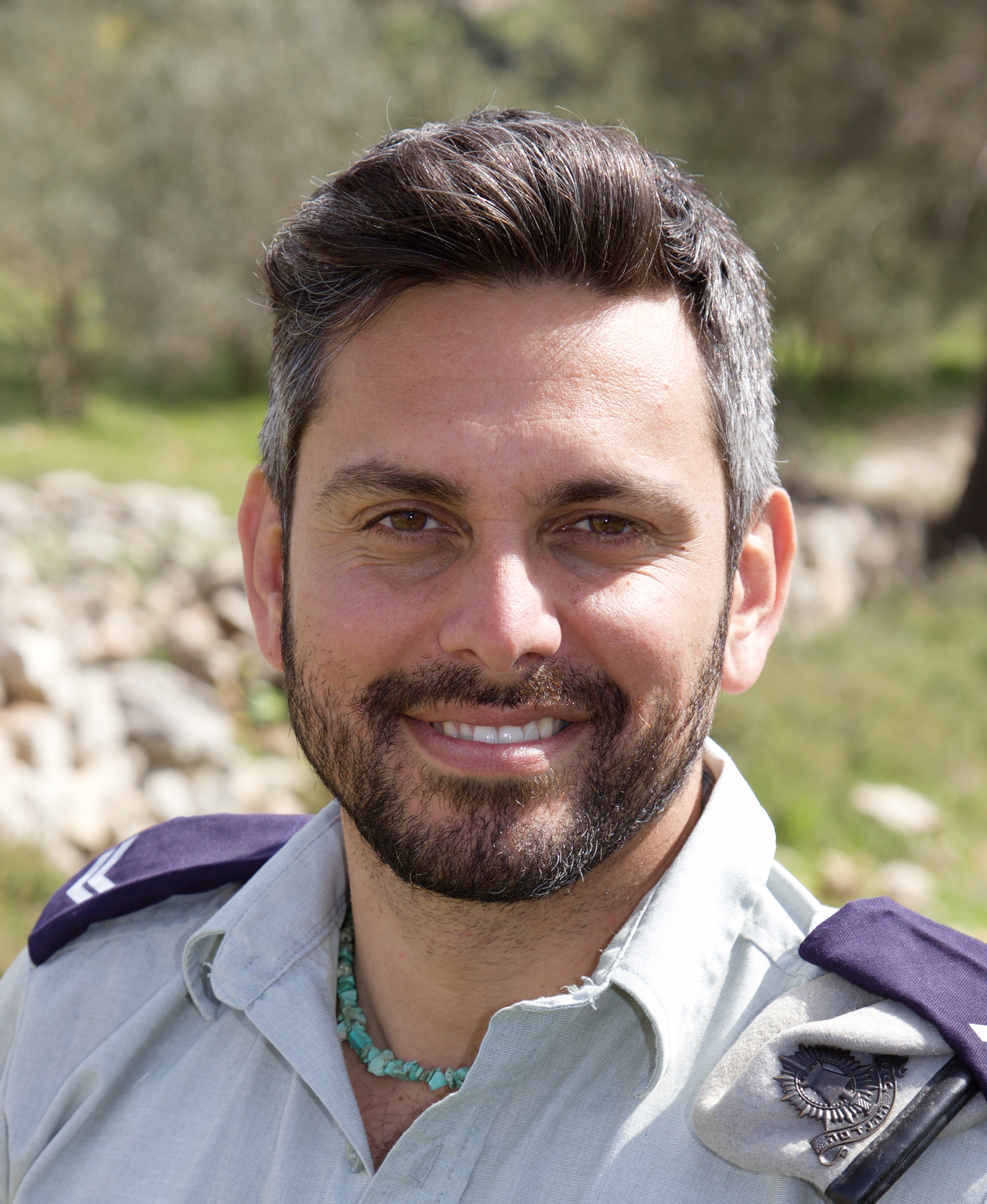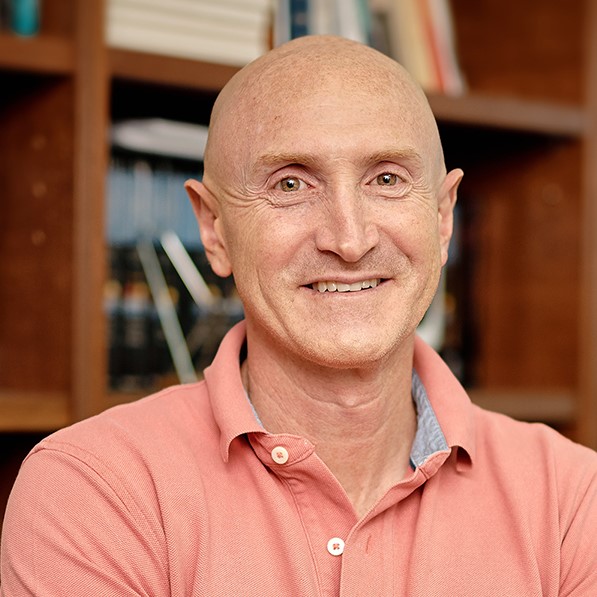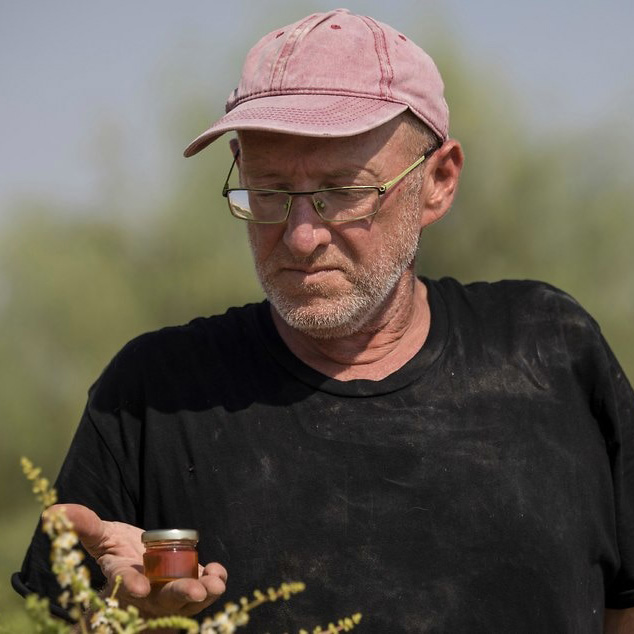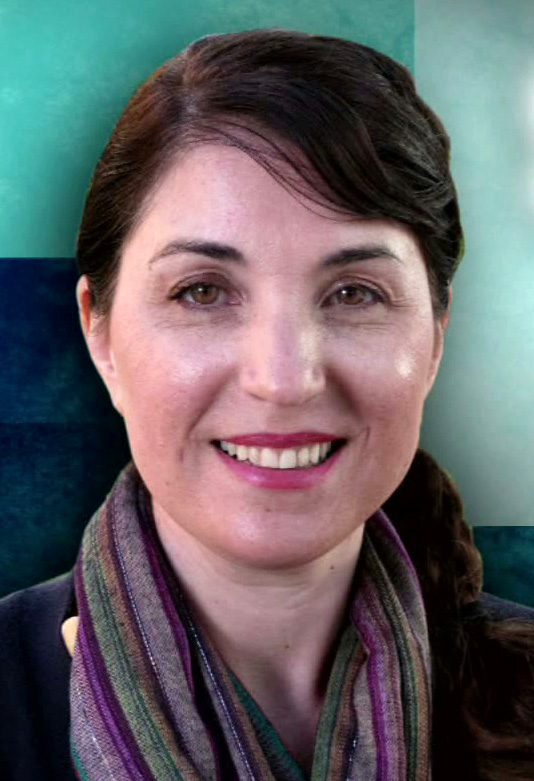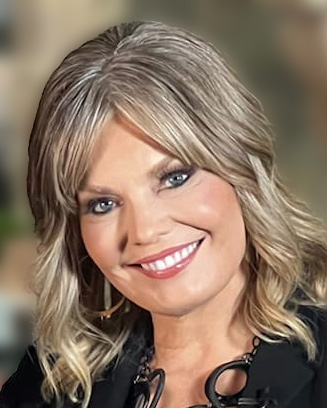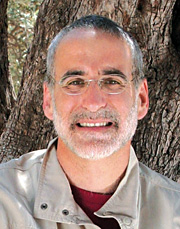Bonus Interviews, Part 1
Extended interviews with individuals appearing in this series: Doron Keidar from Cry for Zion, Dr. Seth Postell the Academic Dean of Israel College of the Bible in Netanya, and Guy Erlich the owner/director of Balm of Gilead farm.
Air dates: 2018-Dec-05, 2019-Dec-11
Production Code: 1820
Episode 9 of 10 in the series “Return to Eden”
Duration: 28:30
Year: 2018
Series code: DRTE
![Closed Captioned [CC]](/pics/cc.png) Closed Captioned
Closed Captioned
Other ways to watch:

Transcript
Caption transcript for Return to Eden: “Bonus Interviews,” Part 1 (9/10)
- 00:01 David Hart: Did you know that preparations are presently being made for the third temple in Jerusalem? That and so much more today
- 00:10 on “Zola Levitt Presents.” ♪♪♪
- 00:14 male announcer: “Brethren, my heart’s desire and prayer to God
- 00:18 for Israel is, that they might be saved.
- 00:22 For there is no difference between the Jew and the Greek:
- 00:24 for the same Lord over all is rich unto all
- 00:27 that call upon him.”
- 00:30 “Zola Levitt Presents.”
- 00:33 ♪♪♪
- 00:43 ♪♪♪
- 00:50 David: We are so glad you have joined us today
- 00:52 on “Zola Levitt Presents,” I’m David Hart.
- 00:54 Kirsten Hart: I’m Kirsten Hart.
- 00:55 Jeffrey Seif: Jeffrey Seif.
- 00:57 Kirsten: And the past two months you have been watching Jeff
- 00:59 in the series, “Return to Eden.”
- 01:02 You finished up all the teaching, and is there any way
- 01:05 to tie it all together today?
- 01:07 Jeffrey: Well, because it’s the story from Genesis to
- 01:10 Revelation, it’s a bit much for 30 seconds, but at the end of
- 01:12 the day, we’re looking at prophecy, beginning in Genesis
- 01:16 with Eden, and seeing how it’s fulfilled, manifest prophecies
- 01:20 in the temple, and we’re wanting to help people to see it.
- 01:24 Speaking of which, our very own Chaim Malespin is gonna speak to
- 01:28 Doron, an expert on the Temple Mount and security in
- 01:32 and around the Temple Mount.
- 01:34 You’re gonna love him and you’re gonna hear him now.
- 01:37 ♪♪♪
- 01:42 Chaim Malespin: Thank you so much for taking the time
- 01:44 to be interviewed today.
- 01:45 Tell us a little bit about yourself.
- 01:47 Doron Keidar: I started to study the history
- 01:48 of the Temple Mount from those who were educated in it,
- 01:51 those who were leading movements on it.
- 01:54 Studying military history because my background is
- 01:56 in a combat unit, studying combat, and war, and how–
- 02:01 so I can better prepare for future wars, et cetera.
- 02:04 And when I learned about this interesting gentleman
- 02:07 called Rabbi Shlomo Goren, he blew me away.
- 02:10 Because for one, I realized I don’t know much about this man
- 02:14 and he’s a real key pillar in the IDF, and as far
- 02:18 as the Temple Mount is concerned, plus Hebron.
- 02:22 He was a key player as far as encouraging the generals,
- 02:25 telling Motta Gur, “You need to take the Temple Mount.
- 02:29 You need to take Hebron.”
- 02:30 He was the fire behind these general decisions that say,
- 02:34 “Okay, fine, let’s do it,” but I hadn’t heard of him before.
- 02:38 So, I studied up on Shlomo Goren,
- 02:40 read his biography, studied his life,
- 02:42 studied his “hashkafat olam” as we say, his worldview.
- 02:46 Why was it important to him?
- 02:48 Why was it important to restore specific
- 02:51 Jewish prayer into combat?
- 02:54 The prayer that we pray before we go into battle,
- 02:56 that’s Shlomo Goren.
- 02:58 So, he did a lot of basically groundbreaking laying the
- 03:04 foundations of the reborn Jewish state, both in diplomacy for the
- 03:09 state when it comes to the specifics of the Temple Mount,
- 03:12 Hebron, and the breathing life into the IDF
- 03:16 from a religious aspect.
- 03:18 Chaim: Yeah, so there’s a growing interest in nations to
- 03:21 come to Jerusalem and to come to the Temple Mount.
- 03:25 Why, in your opinion, is this?
- 03:27 Doron: Well, all the Temple Mount movements
- 03:29 and organizations in Israel, every one of them verbatim
- 03:33 say the same thing.
- 03:35 Beit tefilah yikkarei, beit tefilah lechol ha’amim.
- 03:38 It will be called a house of prayer for all nations.
- 03:40 So, we believe in that.
- 03:41 I believe in that, that the nations
- 03:43 are gonna stream to Zion.
- 03:45 They’re gonna stream to God’s holy house and that’s going to
- 03:48 be part of the restoration that God brings, not just to Israel,
- 03:52 but to the world as a whole, because that’s gonna be the glue
- 03:55 in which God is going to breathe life through Israel
- 03:58 and through–onwards to the nations.
- 04:01 Chaim: Do you think that the rebuilding of the temple
- 04:03 is a reconstruction of Eden that was lost?
- 04:06 Doron: Absolutely.
- 04:08 The Genesis of the Temple Mount
- 04:10 starts with Adam and Eve.
- 04:12 God takes the piece of earth, as we know, makes clay,
- 04:16 breathes life into it, et cetera, et cetera.
- 04:18 That’s Adam, the first human being.
- 04:20 He’s created according to Jewish tradition from the very earth
- 04:23 of the Temple Mount.
- 04:25 Future then, you have also the Garden of Eden which is the
- 04:28 place he’s dwelling in in this heavenly place, as you will,
- 04:31 Gan Eden, which is what we say.
- 04:34 You’re going to heaven.
- 04:36 In Hebrew, you say Gan Eden, by the way.
- 04:38 I know in Christian, English-speaking, you use
- 04:41 a different term, heaven and Eden, right?
- 04:45 But in Hebrew, you use the same term for both Eden and heaven.
- 04:49 And so, the point is, in Jewish tradition, we believe this is
- 04:53 where Adam was created out of the earth, we believe this is
- 04:56 where the Garden of Eden was, and we also believe this
- 05:00 is where heaven will meet earth.
- 05:02 So, this is the very navel of the earth, the very place where
- 05:05 heaven meets earth literally.
- 05:08 Chaim: How were the temples a picture of heaven?
- 05:12 Doron: Well, we know that, for example, that you have
- 05:15 the Garden of Eden, and that in the Hebrew it’s synonymous,
- 05:18 Eden, heaven.
- 05:20 And so, it was in Eden that God shows Abraham, ‘kay,
- 05:25 where Eden got taken up, as we know.
- 05:28 It was in Eden that God says, “That is HaMakom,” and this was
- 05:32 the first mention actually of the location of God’s future
- 05:36 temple, and it’s the location that God draws Abraham to start
- 05:41 the restoration process of heaven meeting earth again,
- 05:45 where heaven was on earth in Eden,
- 05:47 which is on the Temple Mount.
- 05:49 There’s a lot of symbolism.
- 05:51 And for example, when the prophets get a vision of heaven,
- 05:55 Daniel, and Ezekiel, and all these, when they get an image of
- 06:00 heaven–in fact, in our prayers, when we pray in replacement
- 06:04 of the sacrificial system that we have, in order to keep
- 06:07 the rehearsal of when the temple will be restored,
- 06:12 when we pray the Amidah, why do we stand
- 06:14 with two feet together?
- 06:17 Because we’re an image of the angels of what
- 06:19 was seen in heaven.
- 06:21 It says, “And they were as if on one leg.”
- 06:24 So, when we do the Amidah, for example, we stand
- 06:27 on two together, as if one leg, to imitate the angels,
- 06:30 ’cause in this part of the prayer, we’re basically
- 06:33 in the presence of the Almighty, in the presence of Hashem.
- 06:36 And so again, there’s all through the prayers, the
- 06:40 sacrifices, the garments, the service, everything is a picture
- 06:43 of the heavenly temple, if you will, where God dwells.
- 06:49 Chaim: Would you say that it’s highly contested more
- 06:52 for spiritual reasons than political reasons?
- 06:54 Doron: Absolutely.
- 06:56 When we have Jewish presence restored back to the bulls eye,
- 06:59 Jerusalem, Judea, Samaria, and the Temple Mount at the very
- 07:03 heart, it explodes because there’s a spiritual conflict,
- 07:06 of course, because the evil powers that be do not want
- 07:10 God’s kingdom, heaven, to meet earth.
- 07:13 They don’t want that.
- 07:15 They don’t want the Messianic kingdom.
- 07:16 They want the chaos.
- 07:18 ♪♪♪
- 07:25 Kirsten: The holy mountain in Jerusalem will be contested
- 07:28 until that day when Yeshua comes back to reign as King of kings
- 07:32 and Lord of lords, hopefully soon.
- 07:35 David: And our next guest, how does he fit in
- 07:37 with this series?
- 07:39 Jeffrey: Well, Dr. Postel, I read a book that he wrote that
- 07:42 dealt with Eden, and Genesis, and the temple,
- 07:46 and I thought it was fascinating.
- 07:48 And part of what I’m doing is just bringing his book to life.
- 07:51 Scholars like him write books and they’re lost
- 07:53 in libraries somewhere.
- 07:55 I wanted the world to see it.
- 07:57 I want you to see Seth Postel.
- 07:59 That’s why he’s coming to you in a moment.
- 08:00 Dr. Postel, I first met him, he is a faculty member and I am
- 08:04 an adjunct faculty at Israel College of the Bible.
- 08:08 Furthermore, I worked with Seth on a Bible translation project.
- 08:12 Great scholar, great Jewish believer, great Israeli.
- 08:16 Dr. Seth Postel coming to you right now.
- 08:19 ♪♪♪
- 08:24 Dr. Seth Postel: When I started to look at these
- 08:26 parallels, and there are numerous parallels, it became
- 08:29 very clear that just as God brought Adam into Eden,
- 08:36 God brought Israel into the promised land.
- 08:39 A correlation between the promised land and the land
- 08:42 of Eden, interestingly enough.
- 08:45 Why does God bring Abraham from the east, westward to this land,
- 08:53 to the land of Israel?
- 08:55 And I would argue it’s–in a way, it is to restore the very
- 09:00 things that were lost when Adam and Eve sinned.
- 09:03 It is interesting, for instance, in the book of Ezekiel.
- 09:08 Ezekiel describes the New Jerusalem, very much using
- 09:14 language from the story of the Garden of Eden.
- 09:16 And so, the river coming out from the temple to water–
- 09:22 you know, water comes out from this new temple
- 09:25 and there’s all sorts of Edenic imagery.
- 09:28 You’ve got the tree of life and the fruit, the healing of the
- 09:31 nations, which draws a direct correlation between Eden
- 09:35 and Jerusalem, and beyond that the promised land.
- 09:38 Of course, you have the book of Revelation that makes a very
- 09:41 close connection between the Jerusalem coming down
- 09:44 from the heaven and the Garden of Eden.
- 09:48 Of interest is if you look at the Garden of Eden in Genesis
- 09:52 chapter 2, verses 10 through 14, the boundaries of Eden
- 09:57 are described on the basis of rivers.
- 10:01 Of rivers.
- 10:02 And if you look at the rivers, you’ll notice that these rivers
- 10:05 are described from south to north.
- 10:09 And what that does is it puts the land of Canaan right
- 10:14 at the center of that matrix of rivers.
- 10:18 Interestingly enough, how does God describe the boundaries of
- 10:21 the promised land to Abraham in Genesis chapter 15, verse 18?
- 10:25 He refers to a couple of those same rivers.
- 10:29 And so, just as Adam was exiled from this land because of
- 10:35 disobedience, God brings Abraham back into this land ultimately
- 10:40 to restore blessing, blessing to Abraham, his descendants,
- 10:45 and to all the families on the earth.
- 10:47 Jeffrey: Some would look at a present-day map and say,
- 10:50 “But the Tigris and Euphrates rivers as mentioned in Genesis
- 10:53 are in Iraq.”
- 10:55 And Dr. Postel responds–
- 10:58 Dr. Postel: But that would be the northern boundaries
- 11:00 of those rivers.
- 11:01 Keep in mind that there’s a head river that goes out
- 11:03 from the Garden to water the whole earth.
- 11:07 And if you’ll notice, there’s other rivers that are tied
- 11:09 to the land of Cush, which would be in the south.
- 11:13 And so, what you have here is you’ve got the northernmost
- 11:16 boundaries of where this river goes
- 11:19 and the southernmost boundary of where these rivers go.
- 11:21 In other words, if you look at the middle, the middle point
- 11:26 between these two, the northern and southern place
- 11:30 of these rivers, it puts us right in the promised land.
- 11:34 Look at the way that the Bible begins.
- 11:37 You’ve got this Garden. You’ve got the trees of life.
- 11:41 There are no curses.
- 11:43 We only have blessings, which is a major theme of the Torah,
- 11:46 is God’s purpose to bless.
- 11:48 And then look at the end of the book of the New Testament,
- 11:52 the book of Revelation.
- 11:54 Once again, we have the trees of life.
- 11:56 We have the removal of the curse.
- 11:58 We’ve got Jerusalem, which is just like an Eden
- 12:02 that now has become a city.
- 12:05 And so, absolutely the biblical writers link
- 12:09 the promised land with Eden.
- 12:11 It’s a very common theme.
- 12:14 Jeffrey: Believers have long felt a certain allure
- 12:18 to the holy land, and why is that?
- 12:21 Well, Dr. Postel puts forth, and I do as well,
- 12:25 that when we look at Genesis, when we look at Eden,
- 12:30 we’re looking at the land of Israel.
- 12:33 That’s where it was.
- 12:35 People were kicked out, and then there’s this draw to return,
- 12:39 a draw that I feel and that you may very well feel.
- 12:44 Let’s hear more now from Dr. Postel.
- 12:48 Dr. Postel: When we think about the Messianic hope,
- 12:51 when we think about the hope of believers,
- 12:55 typically the way that the hope is presented
- 12:57 is when we die we will go to heaven, and that’s true.
- 13:00 Absent from the body is present with the Lord.
- 13:03 That is true as it is, but interestingly enough, throughout
- 13:07 the Scriptures the biblical hope is constantly presented,
- 13:11 not as us leaving, but as his coming.
- 13:14 We long for his return.
- 13:17 And so, the biblical hope is rooted
- 13:20 in the redemption of creation.
- 13:22 The biblical hope is rooted in the removal of the curse.
- 13:26 The biblical hope is rooted in the seed of the woman,
- 13:31 the seed of David, ruling and reigning from
- 13:35 a specific geographical region.
- 13:39 The world will never be right until a son of Adam,
- 13:43 a son of David is seated in Jerusalem.
- 13:49 That is the plan of God. That is biblical hope.
- 13:52 And so, I would simply argue that to not see this narrative
- 13:55 thread is to really undermine God’s purposes for the coming of
- 14:00 the Messiah and how that’s tied back to his original purposes
- 14:04 with Adam and Eve.
- 14:06 ♪♪♪
- 14:15 announcer: Our resource this week, the series,
- 14:18 “Return to Eden,” on DVD.
- 14:20 In this ten-program series, Dr. Jeffrey Seif uncovers how
- 14:24 the Lord bridged the relationship gap caused
- 14:27 by mankind’s sin in the Garden of Eden
- 14:29 by creating a special relationship with a people
- 14:32 and a land that eventually led to the Messiah.
- 14:35 Get this series for yourself or to share with friends.
- 14:39 Just contact us and ask for the DVD series, “Return to Eden.”
- 14:46 announcer: If you’re a long-time viewer
- 14:47 of “Zola Levitt Presents,” then you’re probably a long-time
- 14:50 supporter, and I just wanna say thank you, as you
- 14:53 know how important your donations are to keep
- 14:57 this ministry on the air.
- 14:59 If you’re a new viewer, I’d like to talk to you
- 15:01 for just a moment.
- 15:03 It’s very important that you remember that the only way
- 15:06 that we can stay on the air is through
- 15:08 your donations of support.
- 15:10 Please remember us monthly, and thank you.
- 15:19 David: These interviews have been so good, fascinating,
- 15:22 and we at this table even have learned so much.
- 15:25 We hope you have too.
- 15:27 Kirsten: So much. We grew up in the church.
- 15:28 David and I grew up in the church.
- 15:30 If you’ve been watching the program you know that.
- 15:31 And honestly, I have never been taught or never heard
- 15:35 of the parallels between Eden and the temple.
- 15:39 I love learning something new.
- 15:42 And Jeff Seif, what do you think of what Dr. Postel
- 15:44 just taught us?
- 15:45 Jeffrey: Well, it comes from Jewish scholarship
- 15:47 and Messianic Jewish scholarship.
- 15:49 And with you, I think that life is all about lifelong learning.
- 15:53 It’s not like you get a doctorate, you’re some PhD,
- 15:55 and you know everything.
- 15:56 We all should be learners, and Dr. Postel is a great teacher.
- 16:00 Something to learn on the other side of the brain,
- 16:02 not just information but inspiration,
- 16:05 Guy Erlich is manufacturing incense,
- 16:08 an Israeli, a Jew, in Israel, in anticipation
- 16:11 of a coming temple to be rebuilt there.
- 16:14 Let’s hear from Guy.
- 16:21 Guy Erlich: I’m Guy Erlich,
- 16:23 and this is the Balm of Gilead Farm.
- 16:24 We are standing at the hill of frankincense,
- 16:26 part of my plantation.
- 16:28 Over here, the vast majority the trees are boswellia sacra,
- 16:32 the true frankincense, the frankincense of the incense
- 16:35 of the early temple, the frankincense of the present
- 16:37 of the three Magis, and the vast majority of the plants here
- 16:43 are frankincense trees.
- 16:46 The frankincense comes from the resin which come out
- 16:49 from the bark.
- 16:52 There is a special method of making a tip,
- 16:54 a cut at the branch, and then we let the resin go out and dry.
- 17:00 And after about, between one week to ten days,
- 17:03 we collect the dried resin.
- 17:05 It’s called tears because most of them have the shape of the
- 17:07 tear, and this is the main raw material from the frankincense.
- 17:14 Jeffrey: This is Guy’s Garden of Eden where he comes daily
- 17:18 to inspect and tenderly care for his rare collection of plants.
- 17:24 Actually, he started it all for medicinal purposes,
- 17:27 but it seems there were bigger plans for his life,
- 17:30 a bigger reason for it all.
- 17:33 Guy: Along the years, a lot of temple fans
- 17:35 are coming to visit me.
- 17:37 I become a magnet for temple fans.
- 17:40 In the beginning, I found it quite annoying.
- 17:44 I started my venture in order to be an economic boost
- 17:49 to my family, not to serve the third temple.
- 17:54 And I can tell you that the first time that a lot of temple
- 17:58 fans are coming to meet me, the people of the temple Institute,
- 18:03 Rabbi Ariel was here several times even with his family,
- 18:11 Yehuda Glick, Yehuda Etzion, a lot of them.
- 18:16 When Rabbi Ariel was here for the first time, I told him,
- 18:19 “Rabbi Ariel, when the temple will come from the sky,
- 18:22 I’ll be more than happy to supply the incense
- 18:24 of the holy temple, but forget it,
- 18:26 I’m not going to build you a temple.”
- 18:28 He was very upset with me.
- 18:30 He told me that I don’t know what my destination is.
- 18:34 I started with my plants with a desire to make
- 18:37 a medication out of them.
- 18:39 And this is still my main goal, but along the years I understood
- 18:43 that my plants have some other purposes.
- 18:47 And if they will be able to serve the third temple,
- 18:51 I’ll be more than happy to be the one that would bring it.
- 18:55 So, I promised Rabbi Ariel that I’ll do my best to have
- 19:04 as many ingredients of the holy temple as I can.
- 19:07 There are eight known ingredients and another
- 19:13 three unknown ingredients.
- 19:16 To find out what are the unknown ingredients and to try to have
- 19:20 the best quality of ingredients, so when there will be a temple,
- 19:24 we will have the resin.
- 19:25 We will not have to wait for this.
- 19:29 And about two months ago, as far as I understand it,
- 19:34 I become officially– I officially became
- 19:37 the incense provider for the third temple.
- 19:43 The frankincense was used in different places.
- 19:46 The main place was as part of the eleven ingredients
- 19:49 of the incense of the holy temple.
- 19:53 It was burned on the golden altar.
- 19:57 It was also put as pieces of resin on the table of bread.
- 20:03 There was a family of Kohanim who were in charge
- 20:07 for making the incense for the holy temple.
- 20:09 And their office was called the Frankincense Office.
- 20:15 Jeffrey: This amazing garden collection is located adjacent
- 20:18 to the northern part of the Dead Sea, the lowest spot
- 20:22 on planet earth.
- 20:24 Guy has called his site the Balm of Gilead Farm,
- 20:28 named after another plant he considers one
- 20:31 of his personal treasures.
- 20:34 Guy: This is the balm of Gilead. Cedronella canariensis.
- 20:38 The main plant, it is identified as Cedronella canariensis.
- 20:41 This originally came from Saudi Arabia.
- 20:47 We are in the spring time.
- 20:48 All the winter, it was naked without leaves.
- 20:53 It was quite miserable and great stress, but now it’s starting
- 20:56 to be hot and its leaves are coming back.
- 21:01 So, this is a waking up balm of Gilead.
- 21:06 I’m using different parts of the plant.
- 21:07 I’m using the resin, I’m using the fruit,
- 21:09 and I’m using the leaves.
- 21:11 Each one of them have a different chemical composition
- 21:15 and different smell, and I do believe
- 21:18 in the composition of all of them.
- 21:22 First of all, it was one of the most important medication
- 21:25 of ancient time.
- 21:28 Then it was the most important and most expensive perfume
- 21:32 in the Roman Empire.
- 21:34 The plant was so important that it served as
- 21:36 the first ingredient of the incense of the holy temple.
- 21:41 For the incense, they used the dry branches.
- 21:43 This is what Professor Zohar Amar is claiming.
- 21:47 The period of the second temple, the balm of Gilead was the sole
- 21:50 component, the only component of the anointing oil
- 21:53 of the kings of Israel.
- 21:55 There is a very interesting claim saying that the gold
- 21:59 from the three magis’ gift was not real gold.
- 22:06 It was the balm of Gilead, that was more precious than gold,
- 22:10 and that was the oil that was needed to anoint the new king.
- 22:18 This myrrh was the second ingredient of the incense
- 22:21 of the holy temple.
- 22:23 This myrrh was also the second gift of the three magis.
- 22:28 It was a very important plant in ancient time as a medication,
- 22:33 spirituality, and it got a lot of use in ancient time.
- 22:37 And even nowadays, we have a lot of medical potential
- 22:40 lying in this.
- 22:42 Jeffrey: Strangely enough, when Guy first started his farm,
- 22:45 he knew nothing about agriculture.
- 22:48 We asked him to explain why he pursued his dream in one
- 22:51 of the most difficult places in the world to keep things green.
- 22:56 Guy: I guess out of curiosity, the persistence,
- 23:02 and maybe a guiding hand from above, I don’t know.
- 23:09 I am not a religious Jew, but I find myself a great believer.
- 23:15 My faith is very strong.
- 23:17 And I can tell you that I find the strength to keep on going
- 23:22 with my mission due to the understanding that there is
- 23:28 a meaningful thing with my plants.
- 23:31 It can be to the direction of the third temple.
- 23:34 It can be to the direction of medicine.
- 23:36 Both of them are sacred for me.
- 23:39 Jeffrey: Guy proudly displays the fruit of his labor.
- 23:43 Like gold nuggets in his head, this is truly his treasure.
- 23:49 Guy: This is the resin of the true frankincense,
- 23:51 the boswellia sacra.
- 23:53 It comes from the cutting we made on the branches
- 23:55 of the boswellia sacra.
- 23:58 Over here, I’ve got a mixture of frankincense, myrrh,
- 24:01 and some dried balm of Gilead branches.
- 24:03 I’m making a resin.
- 24:05 I’m crushing it into very, very small pieces.
- 24:09 In Hebrew, this is called mugmar.
- 24:11 There is a very, very nice sentence in Hebrew.
- 24:15 It says to bless the mugmar.
- 24:17 So, I’m going to take some mugmar in my hand and I want
- 24:21 to bless you good people with health, and happiness,
- 24:25 and prosperity, and fulfillness.
- 24:28 This is how they burn the incense in the temple,
- 24:33 not on direct fire, on coal.
- 24:35 Sometimes they put some salt in order to make the coal
- 24:38 a bit cooler.
- 24:41 But this is how they burn the incense, chopped resin
- 24:45 put on coal.
- 24:47 ♪♪♪
- 24:52 Kirsten: We hope you’re enjoying these interviews
- 24:54 as much as we are.
- 24:56 Personally, I love learning something new and I never knew,
- 25:01 never heard before that the balm of Gilead is a gold resin
- 25:05 and the oil was used to anoint the kings of Israel.
- 25:10 That’s huge to me.
- 25:12 I mean, we sing, “There is a balm in Gilead,”
- 25:15 I mean, this old hymn.
- 25:17 David: That’s what I remember from then.
- 25:18 Kirsten: Right?
- 25:20 And I don’t know–we didn’t know that it’s a soothing balm,
- 25:21 and it might have been, but the oil, and all this is
- 25:23 for the third temple.
- 25:25 Jeffrey: Yes, and we take you to the land of the temple
- 25:28 every time you turn on “Zola Levitt Presents.”
- 25:32 David: Stay with us for more insight from Dr. Jeffrey Seif.
- 25:36 female announcer: For many, a trip to the holy land
- 25:38 is the dream of a lifetime.
- 25:40 The Bible truly comes alive as you see the sights where so many
- 25:45 biblical events happened, where the teaching is always
- 25:48 from a Messianic perspective.
- 25:50 Come on a Zola tour in the spring to see Israel and Petra,
- 25:54 or in the fall to add a cruise to Greece and Ephesus.
- 25:58 See the land of the Bible for yourself.
- 26:01 Contact us to reserve your dream of a lifetime.
- 26:07 David: We consider you friends as you watch
- 26:09 our program each week.
- 26:10 You become family if you join us on a Zola Levitt tour.
- 26:15 We go to Greece, Israel, and Petra.
- 26:18 They become family.
- 26:20 Kirsten: They do. We eat together.
- 26:21 We hang together. We see all the sights together.
- 26:24 David: We lead you in worship everywhere we go.
- 26:26 Kirsten: Yes, we sing a lot of worship, so come with us.
- 26:28 Levitt.com is our website. We have learned a lot.
- 26:32 I have learned a lot personally in this program today.
- 26:35 Is there any way to summarize everything we’ve seen
- 26:38 and heard today?
- 26:39 Jeffrey: I don’t think so, not in 30 seconds, save to say
- 26:42 that we see pictures of Israel, we hear voices from Israel, we
- 26:48 see the modern world in Israel, and we see the ancient word.
- 26:52 We bring it all together, and because of your gifts to us, we
- 26:56 help bring–you help us to bring the story to you and the world.
- 27:00 Thank you, please keep those gifts coming.
- 27:04 Kirsten: We have more coming next week.
- 27:05 Join us.
- 27:07 Tell your friends and family, “Watch ‘Zola Levitt Presents.'”
- 27:10 We’re here every week.
- 27:12 David: Finish us out today.
- 27:13 Jeffrey: Yes, and as you go, sha’alu shalom Yerushalayim.
- 27:18 David: Pray for the peace of Jerusalem.
- 27:22 male announcer: Our monthly newsletter, “The Levitt Letter,”
- 27:24 is free and full of insightful articles and news commentary
- 27:27 from a Messianic perspective.
- 27:30 Visit levitt.com to find our newsletter,
- 27:32 along with current and past programs,
- 27:35 our television schedule, and much more.
- 27:37 female announcer: Don’t forget to order this week’s
- 27:39 resource by calling 1-800-WONDERS,
- 27:43 or you can purchase it from our store at levitt.com.
- 27:47 male announcer: Your donations to Zola Levitt Ministries
- 27:49 help these organizations bless Israel.
- 27:53 female announcer: Thanks again for joining us this week.
- 27:55 Zola Levitt Ministries and this television program depend
- 27:58 on tax-deductible donations from viewers like you.
- 28:04 ♪♪♪
- 28:14 ♪♪♪
- 28:19 CC BY ABERDEEN CAPTIONING 1-800-688-6621 WWW.ABERCAP.COM
- 28:24 male announcer: This has been a paid program brought to you
- 28:26 by Zola Levitt Ministries.

